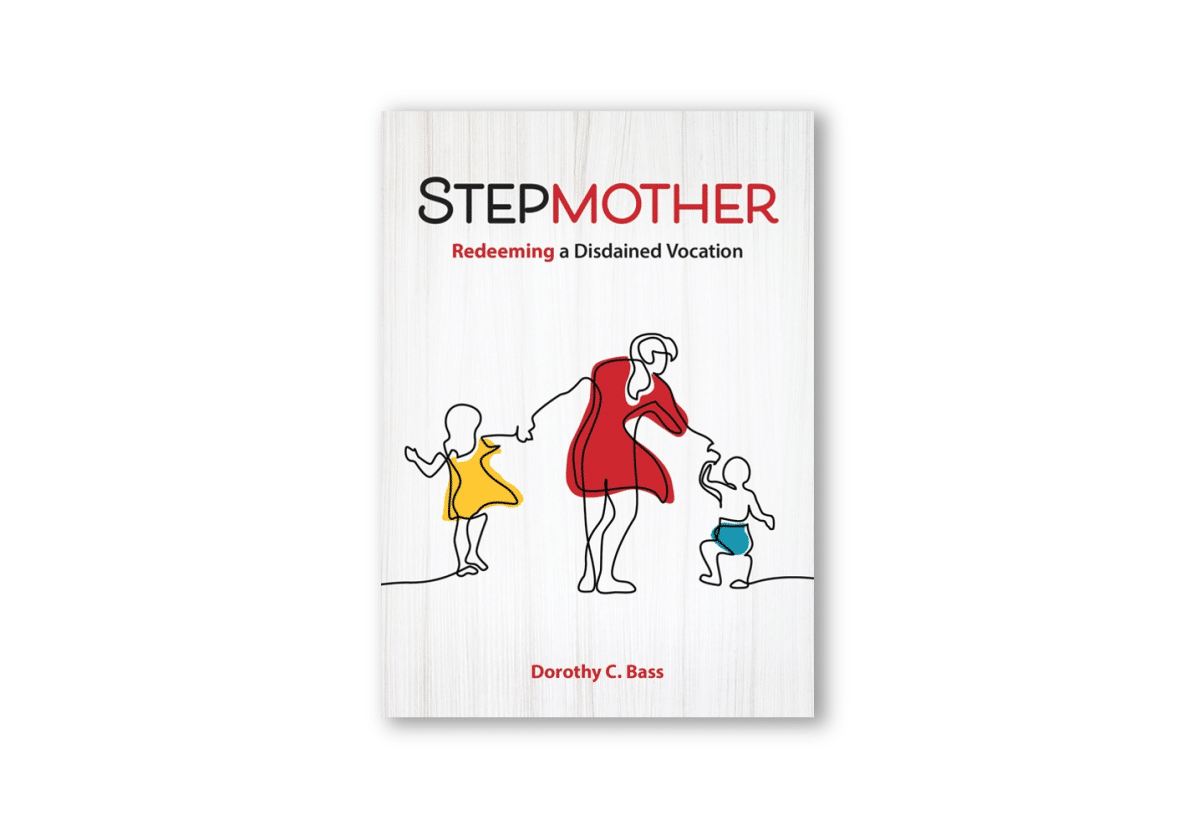

STEPMOTHER: Redeeming a Disdained Vocation. By Dorothy C. Bass. Minneapolis: Broadleaf Books, 2022. 202 pages.
Being a stepparent is not easy. I’ve been a stepchild, but that is not the same thing, especially since I was already a junior in high school when my mother remarried after my parent’s divorce. So, I can’t really speak to this from personal experience, other than observing how others have experienced life as a stepparent. I can imagine that stepmothers, could have it harder than stepfathers. Perhaps that’s because mothers have traditionally been the family caregivers. So how does a stepmother fit in? It doesn’t help the situation that traditionally stepmothers are seen as being evil beings. Think about the stepmothers in Cinderella or Snow White. Despite the traditional depiction of stepmothers, family dynamics have been changing for some time and stepparenting is also on the increase. The reasons behind these change dynamics are complicated. Whereas once upon a time couples stayed together for worse as well as better. Now, couples no longer consider staying together when life together is unworkable at best. So, divorces happen along with remarriage. Of course, it’s not just divorce that leads to second marriages. The death of a spouse can also contribute to reconfigured families (consider President and Dr. Biden, who married after Joe’s wife died in a car accident, making Jill stepmother to his surviving children).

Robert D. Cornwall
When it comes to the vocation of being a stepmother, Dorothy C. Bass, offers a response to the traditional picture of the evil stepmother. She seeks to redeem this “disdained vocation” by offering her own life experience as a word of grace and encouragement to those who find themselves serving as stepmothers.
The author of Stepmother, Dorothy Bass, is a well-known writer, church historian, and teacher of practical theology. She was ordained in the United Church of Christ and served for twenty-five years as director of the Valparaiso Project on the Education and Formation of People in Faith. For the purposes of this review, Dorothy Bass is a stepparent. That means she knows something about the topic at hand. While she acknowledges that every story is different, she also notes that those who find themselves in this form of family life “yearn for reliable companions,” when experiencing the challenges of forming family relationships in this context.
As we walk with Bass through this story, we discover that Bass knows both the joys and the heartaches that come with the territory. For her part, she became a stepparent while in her 30s, having experienced an earlier divorce. She would marry a divorced man who had a young daughter from his first marriage. Eventually, the couple would have children of their own, but this book isn’t about them (though they do figure into the story). This is primarily a book about Bass’s relationship with her stepdaughter and her stepdaughter’s mother.
This is a very personal book because Bass speaks of her own desires and feelings. She shares how others perceived her relationship with her stepdaughter, including the question of identity. While she quickly came to love her stepdaughter Kristen (she has chosen not to use her stepdaughter’s real name in this account and the same is true for Kristen’s mother, who is known here as Bekka), she also discovered that there were questions about the nature of her role. What does it mean to be a stepmother, especially because the word stepmother is often the “ugly word?” The term suggests a secondary status in a relationship. No matter how close stepmother and stepchild might be there is still this sense of ultimately being an outsider to the relationship. After all, she’s not Kristen’s mother, even though when the two are together she performs parental duties. There is the question of where home is? Is Kristen’s home with her father and stepmother or with her mother and stepfather? In this case, the families chose to embrace Kristen’s house as home. These are important issues because the adults in the relationship need to make sure they don’t confuse the child. When it comes to these questions, it needs to be recognized that children will be called upon to make adjustments in their lives, even as the parents must as well. Nevertheless, there are times when feelings get hurt and when jealousy makes an appearance.
Bass walks us through her life with Kristen and Kristen’s mother (as well as with her husband). The penultimate chapter is an important one because it speaks of “Mercy.” The fact that one becomes a stepparent means that there is some form of brokenness in the situation. It might be the death of a spouse leading to remarriage or it might be divorce. Whatever is the case, it is good when mercy enters the picture. So, Bass writes that “when we listen carefully, it’s just possible that we’ll detect small notes of love breaking through the ambient noise of our messy relationships. These notes are worth noticing” (p. 169). So, when this happens, then there’s the possibility of finding healing, hope, and friendship.
The final chapter is titled “Vocation.” Questions of vocation/calling are rooted in identity. While some might question Bass’s use of the term vocation, it does seem to be fitting. One would assume that no one grows up expecting to be a stepparent. It’s not at the top of the list of life callings, and yet many are finding themselves in this role. So, is it not a vocation? For Dorothy Bass, she sees her role as stepmother being a vocation, a calling. She writes that “being a stepmother is not a role into which I was cast after turning out for auditions. It is a vocation into which I was called. It is a place of responsibility, located within a family and the larger society, where I am positioned to contribute to the well-being of others” (p. 185). Ultimately, it is a vocation of love.
I read Dorothy Bass’s Stepmother as an outsider to the situation. As I noted above, I’m not a stepparent, though I’ve experienced being a stepchild. That is, of course, a different story than this one. Hopefully, those who find themselves in this vocation, will find a word of encouragement and even healing. As a result, I hope that with this book a disdained vocation can be redeemed. No longer will “stepmother” be considered an ugly word. While Bass writes first of all to and for stepmothers, I hope others, like me who are clergy will read and consider the message. By gaining a deeper understanding of the complexity of these kinds of relationships, we who find ourselves in relationships with stepmothers (and stepfathers, though that might be a different book), can gain an understanding of family dynamics that will allow us to be of greater support. Whatever one’s family situation, this book offers a valuable and very personal word.
This review originally appeared on BobCornwall.com.
Robert D. Cornwall is an ordained minister in the Christian Church (Disciples of Christ). Now retired from his ministry at Central Woodward Christian Church (Disciples of Christ) of Troy, Michigan, he serves as Minister-at-Large in Troy. He holds a Ph.D. in Historical Theology from Fuller Theological Seminary and is the author of numerous books including his latest books: Called to Bless: Finding Hope by Reclaiming Our Spiritual Roots (Cascade Books, 2021) and Unfettered Spirit: Spiritual Gifts for the New Great Awakening, 2nd Edition, (Energion Publications, 2021). His blog Ponderings on a Faith Journey can be found at www.bobcornwall.com.






